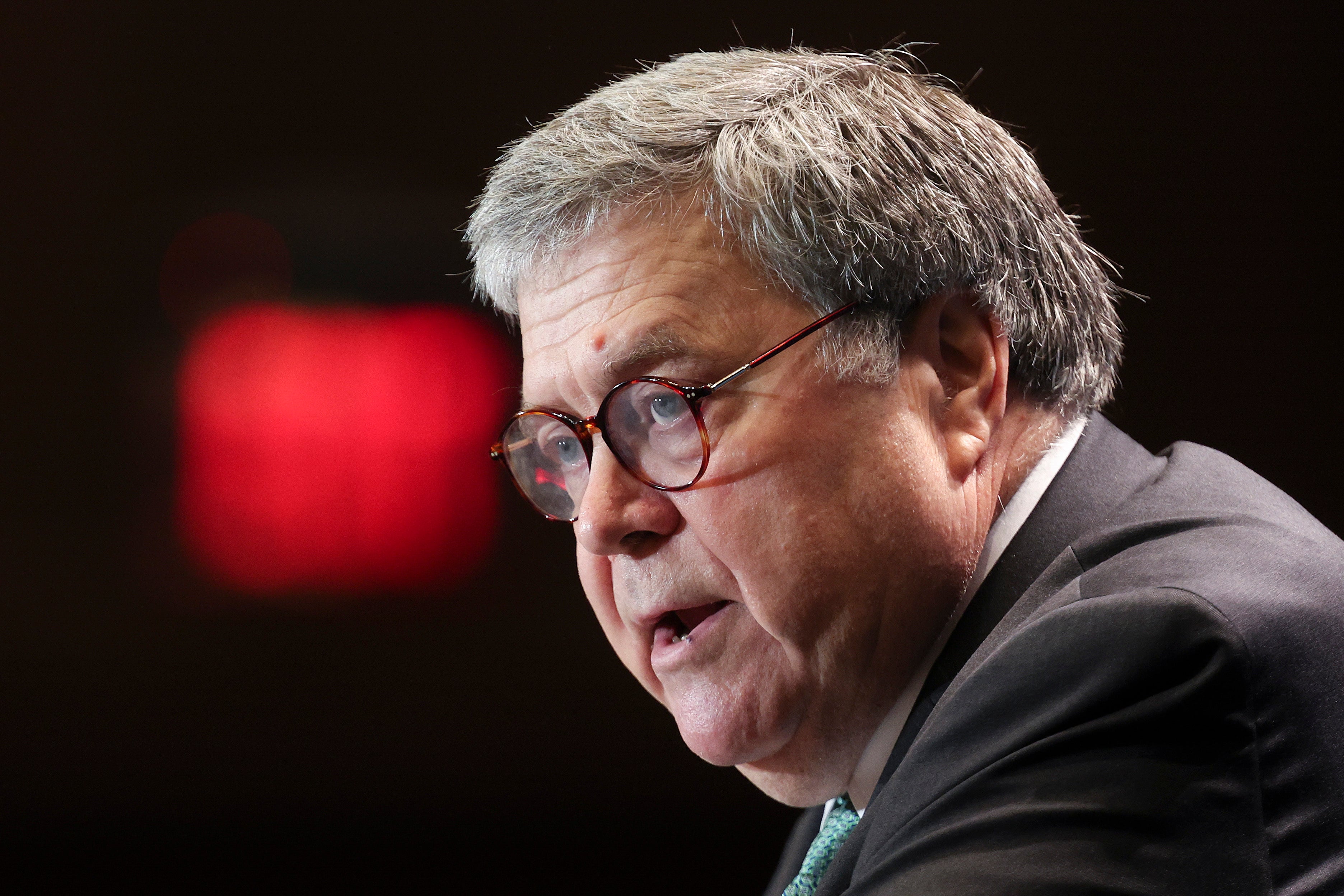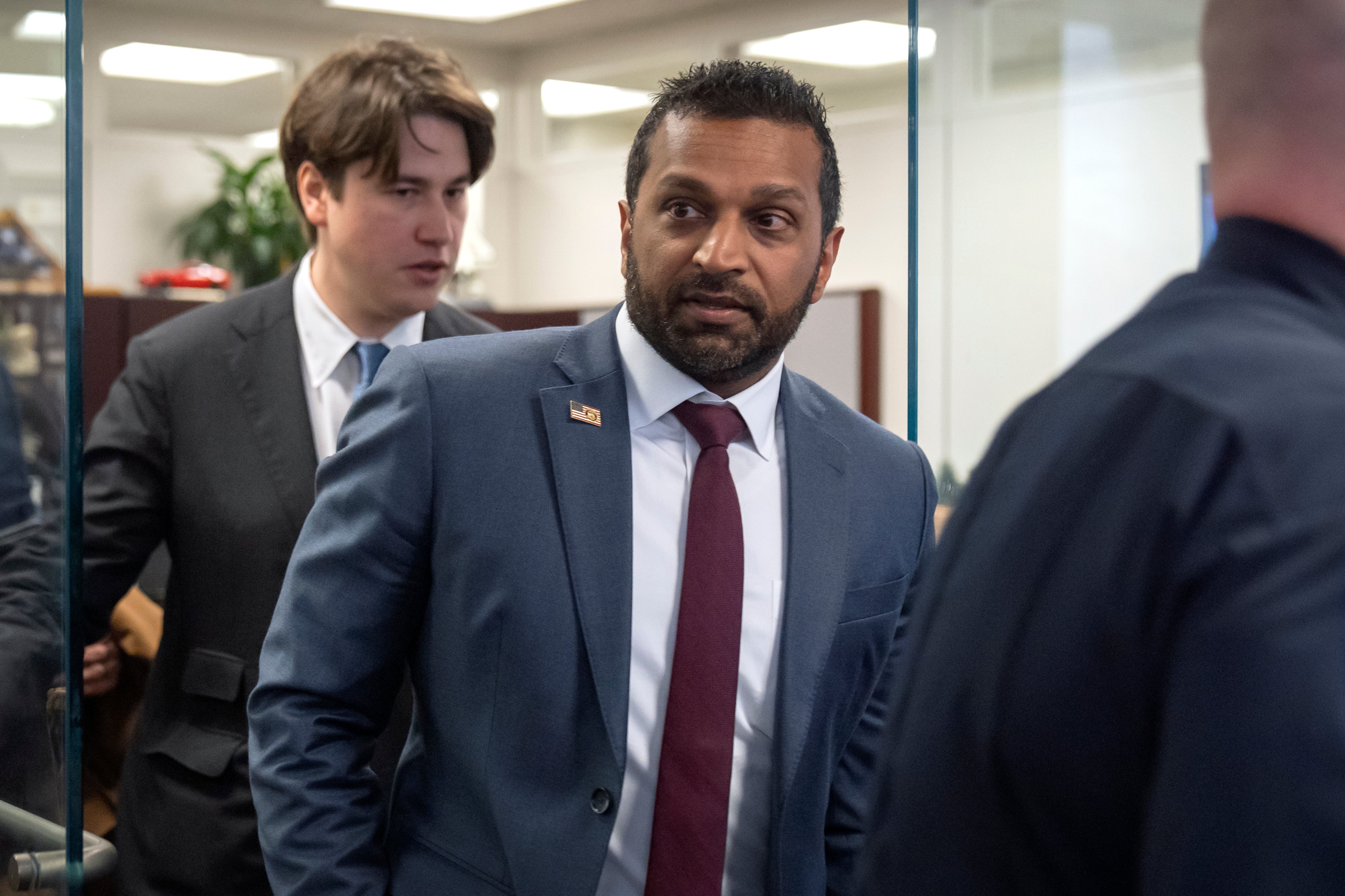Trump’s Justice Department secretly obtained phone records from Congress members and staff
Two House Democrats and 43 staffers targeted in broad sweep during Trump’s administration
Your support helps us to tell the story
From reproductive rights to climate change to Big Tech, The Independent is on the ground when the story is developing. Whether it's investigating the financials of Elon Musk's pro-Trump PAC or producing our latest documentary, 'The A Word', which shines a light on the American women fighting for reproductive rights, we know how important it is to parse out the facts from the messaging.
At such a critical moment in US history, we need reporters on the ground. Your donation allows us to keep sending journalists to speak to both sides of the story.
The Independent is trusted by Americans across the entire political spectrum. And unlike many other quality news outlets, we choose not to lock Americans out of our reporting and analysis with paywalls. We believe quality journalism should be available to everyone, paid for by those who can afford it.
Your support makes all the difference.The Department of Justice secretly obtained phone records from two Democratic members of Congress and more than three dozen staffers during Donald Trump’s first administration, according to a new report from the agency’s watchdog.
In 2017 and 2018, Trump’s Justice Department collected phone records and text message logs belonging to 43 congressional staffers and two House Democrats in a sweep that “risks chilling Congress’s ability to conduct oversight of the executive branch,” Inspector General Michael Horowitz wrote in his 91-page report that was published on Tuesday.
Among the staff that was targeted: former House Intelligence Committee staffer Kash Patel, Trump’s nominee to lead the FBI.
Prosecutors at the time used subpoenas and other legal actions to notify third-party service providers, including Apple, to collect the data, and then issued gag orders to prevent the companies from informing their customers that they were targeted as part of an investigation into government leaks.
Federal investigators did not get approval for the sweeps from then-Attorney General Bill Barr or tell federal courts that the subpoenas were targeting elected officials and their staff, despite the potential for those investigations to interfere with critical congressional oversight efforts.
The sweep included records from two prominent Democratic lawmakers and high-profile Trump critics on the House Intelligence Committee: Adam Schiff and Eric Swalwell.

Patel — who unsuccessfully sued Justice Department officials last year over grand jury subpoenas for his records — was among the 43 congressional staffers caught up in the investigation, which found 21 staff members with Democratic offices, 20 others with Republicans, and two staffers in nonpartisan roles.
The seizures had previously been reported, but the watchdog’s report reveals new details that magnify the scope of the Justice Department’s effort and warnings that attempts to covertly collect vast amounts of information from members of Congress threatens constitutional protections and the separation of powers.
Such an expansive and secret sweep “exposes congressional officials to having their records reviewed by the [Justice Department] solely for conducting Congress’ constitutional authorized oversight duties and creating, at a minimum, the appearance of inappropriate interference by the executive branch in legitimate oversight activity by the legislative branch,” according to the report.
Horowitz determined, however, that his office did not find “any evidence of retaliatory or political motivation by the career prosecutors who issued the compulsory process we reviewed.”

But the report also discovered that Trump’s Justice Department failed to follow its own rules for seeking phone and email records belonging to journalists as part of its investigations into government leaks.
During his first term in office, Barr had secretly pursued records from eight reporters at several news organizations, including CNN, The New York Times and The Washington Post.
Unlike the subpoenas aimed at Congress, Bill did approve subpoenas targeting journalists, and the agency never convened any internal review, according to the watchdog report.
President Joe Biden’s Attorney General Merrick Garland later issued a rule that banned prosecutors from using subpoenas, warrants and court orders to seize records and notes from reporters, and proposed legislation titled the Protect Reporters from Exploitative State Spying Act — or PRESS Act — would enshrine that policy into law.
But Trump has commanded Congress to kill the bill, and the Heritage Foundation-backed Project 2025 recommends rescinding that policy altogether. Trump has since nominated several authors of the plan to his incoming administration.
Patel himself has not been shy about pursuing journalists. “Yes, we’re going to come after the people in the media who lied about American citizens, who helped Joe Biden rig presidential elections — we’re going to come after you,” he told Steve Bannon last year. “Whether it’s criminally or civilly, we’ll figure that out.”

Join our commenting forum
Join thought-provoking conversations, follow other Independent readers and see their replies
Comments